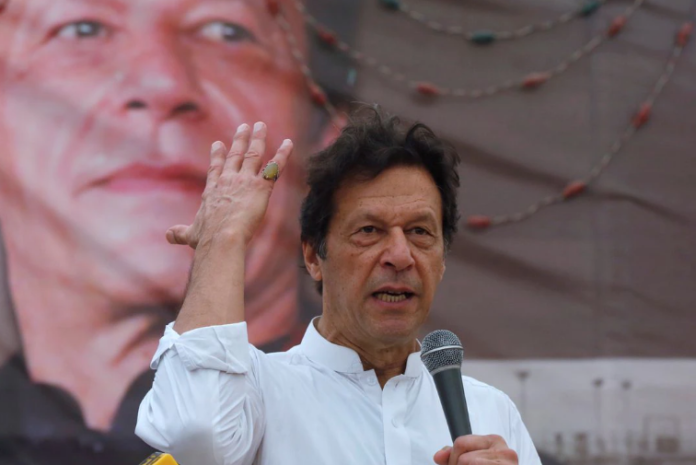From Abid Usman
LAHORE: Pakistan Tehreek-i-Insaf (PTI) Chairman Imran Khan has said that he will announce his “next plan of action” during a PTI protest in Muridke on Thursday (tomorrow).
In a video message on Twitter on Tuesday, he urged the nation to attend the protest in huge numbers. “I want all of you to come so that I can tell you my plan of how we will snatch our freedom because you never get freedom on a plate.”
Besides, the PTI has claimed that former human rights minister Shireen Mazari and Senator Falak Naz, who were re-arrested from outside the Adiala Jail hours after securing bail, are being moved to an “undisclosed location” by the Islamabad police. Imaan Hazir-Mazari, daughter of former human rights minister Shireen Mazari, has said that her mother has been taken to the diplomatic enclave. The Islamabad police re-arrested Mazari and PTI Senator Falak Naz from outside the Adiala Jail.
“I went to Secretariat Thaana and heard her screaming in there. Male officer beat me and dragged me on the floor. They are now shifting her,” Imaan said in a tweet. Meanwhile, the Human Rights Commission of Pakistan has voiced opposition to “the use of the Pakistan Army Act 1952 and Official Secrets Act 1923 to try civilians”.
The organisation says, “While those responsible for arson and damaging public and private property during the recent protests should be held to account, they remain entitled to due process”.
Amnesty International has said “civilians must not be tried under military laws” in Pakistan.
The international organisation’s statement comes a day after the Inter-Services Public Relations issued a press release, expressing the top brass’ resolve to try under army laws persons involved in “attacking” civil and military installations.
Responding to the press release, Deputy Regional Director for South Asia at Amnesty International Dinushika Dissanayake said: “It is alarming to note that the Pakistani Army has stated its intention to try civilians under military laws, possibly in military courts. Trying civilians in military courts is contrary to international law.”




